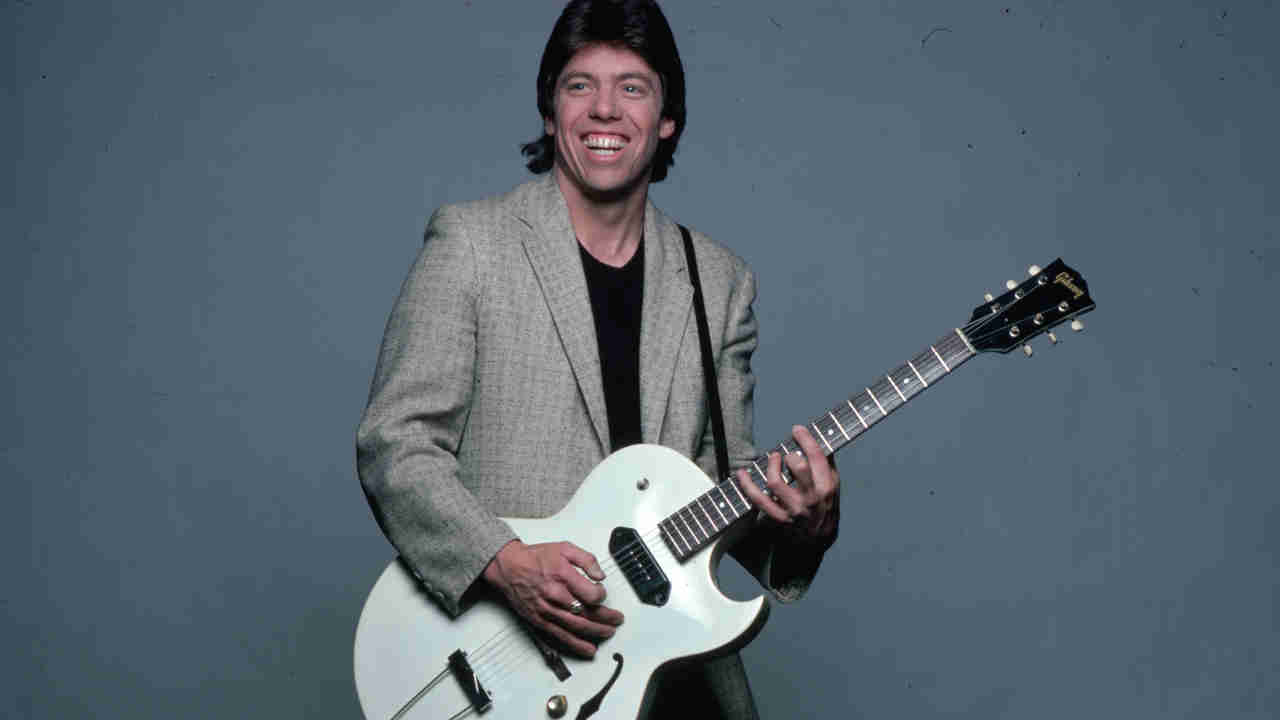The 10 best Enter Shikari songs as chosen by Rou Reynolds
The Enter Shikari frontman picks 10 career highlights

Select the newsletters you’d like to receive. Then, add your email to sign up.
You are now subscribed
Your newsletter sign-up was successful
Want to add more newsletters?

Every Friday
Louder
Louder’s weekly newsletter is jam-packed with the team’s personal highlights from the last seven days, including features, breaking news, reviews and tons of juicy exclusives from the world of alternative music.

Every Friday
Classic Rock
The Classic Rock newsletter is an essential read for the discerning rock fan. Every week we bring you the news, reviews and the very best features and interviews from our extensive archive. Written by rock fans for rock fans.

Every Friday
Metal Hammer
For the last four decades Metal Hammer has been the world’s greatest metal magazine. Created by metalheads for metalheads, ‘Hammer takes you behind the scenes, closer to the action, and nearer to the bands that you love the most.

Every Friday
Prog
The Prog newsletter brings you the very best of Prog Magazine and our website, every Friday. We'll deliver you the very latest news from the Prog universe, informative features and archive material from Prog’s impressive vault.
Since forming in Hertfordshire in 2003, Enter Shikari have been bending and blending myriad music genres over the series of four studio albums, two compilations and a series of EPs.
Here then, is a comprehensive guide to their 10 best tracks, selected by their frontman Rou Reynolds…
SORRY, YOU’RE NOT A WINNER (Take to the Skies, 2007)
“As much as I don’t want to say this song, it’s probably the one with the most history and humour behind it. It was one of the first songs that we ever wrote as Enter Shikari, when Rory [Liam Clewlow, guitars] joined and turned our three-piece into a four-piece in 2003. It was on an EP [Sorry, You’re Not a Winner] that we started handing out at shows in 2003, so we’d already been playing it for three years before we went into the studio to start making Take to the Skies. By that point, we were already trying to phase it out because we were a bit bored of playing it and we weren’t sure whether it encapsulated who we were as a band anymore. But it still made it’s way onto the album. The first single from that album was actually OK Time for Plan B, with Sorry, You’re Not… as the b-side. What happened was the radio started playing the b-side instead of the single because it was more radio friendly. From there it became a bit of a live favourite, and then it just sort of grew and grew. So it went from being a song that we were trying to get rid of to one of our biggest songs ever. We didn’t play it for about six months this year, which was a necessary break really, after 12 years of playing it constantly. I couldn’t put the amount of honesty and emotion into it that it originally had. It’s like working at Subway and making the same sandwich every day. And I felt bad for the audience because they were getting a dishonest act from me, and that’s the last thing I want to be doing. So we dropped it from the set list for six months, and that’s all it needed to make it fresh again.”
MOTHERSHIP (Take to the Skies, 2007)
“This is another early one, and it was a live favourite straight away. It’s that early Enter Shikari sound with the punk, rock and metal on one side, and the rave, trance, house, and drum ‘n’ bass on the other. You can sort of pick out what’s going on at specific points in the song. It’s pretty minimal, really. It was one of the first ones that we wrote that was influenced by ecology and environmentalism, I suppose: this and Jonny Sniper were the first to go in that direction. Mothership is all about being abducted by aliens who are trying to warn the human race about what we’re doing to the planet. It talks about a spaceship hovering over earth and aliens having humans walk the plank, and they plummet down to earth and die. So the lyrics have a bit of a strange storyline in that sense! The video was a lot of fun to make, too. We filmed it at The Underworld in Camden, and we basically fixed a load of cameras to the ceiling so a lot of what you see is the bird’s eye view of a gig. That was influenced by the Hundred Reasons video for If I Could, which we really loved.”
JUGGERNAUTS (Common Dreads, 2009)
The latest news, features and interviews direct to your inbox, from the global home of alternative music.
“This was an era defining track for us. It got A-listed on Radio 1, and that’s only ever happened to us a couple of times. It was totally surreal hearing it on daytime radio for the first time. It’s not exactly our heaviest track, but it’s certainly not a part of the pop world either, and it’s got a really strange, progressive song structure. We were over the moon that the radio considered it playable alongside whatever else they were playing in those days: Kate Nash and Coldplay, and whatever else. So that was a big victory for us, and the song’s been a staple of the live set ever since.”
FANFARE FOR THE CONSCIOUS MAN (Common Dreads, 2009)
“With Common Dreads, the lyrics began to become much more direct, in terms of the social commentary. Take to the Skies was much more shrouded in metaphor and occasionally just all over the place. But as we realised we had a pedestal and a fan base, we felt like we needed to take a stand and make our music mean something. So a lot of the lyrics on Common Dreads became much more like that. Fanfare for the Conscious Man is one of my favourite closing tracks to any of our albums as well. It’s a very passionately delivered vocal, and it’s the first Shikari track that I ever played trumpet on. I learnt trumpet as a kid, but gave it up when I hit 15 because it wasn’t cool and I wanted to play the guitar instead. It was nice to pick it back up again and record some brass for the album. Having that brass element really makes it feel like a fanfare too, and it’s the perfect backdrop for the statements that I make in the lyrics.”
- Enter Shikari on The Mindsweep, politics and Russell Brand
- Review: Enter Shikari – The Mindsweep
- Enter Shikari, Live in Kingston
- Watch Enter Shikari's Hoodwinker video
DESTABILISE (2010)
“This song wasn’t on an album, but it was another era defining song for us. Common Dreads was our foray into the major label world. Things didn’t quite work out, but it wasn’t as bad as some of the scare stories that you hear: we didn’t get dropped horrifically or get fucked over or anything like that. We just realised that it wasn’t for us. Destabilise was the first track that we did after getting out of our record deal, and we were able to get out of it very easily: we still had all our copyrights and things like that. The worst thing about the whole experience was the bureaucracy. Every idea we had would have to go through so many levels up the label to be approved that it slowed everything down. As a band we live in the moment and we don’t plan a lot of stuff: we just do it and that’s how it’s always worked. So being on a major hampered that process and stopped the flow, which is why as soon as we got out of that deal we decided to record and release a song. I produced and directed the video with one of my mates, and that’s where Destabilise came from. It felt so good. It felt like we were free again, to do whatever we wanted to do.”
ARGUING WITH THERMOMETERS (A Flash Flood of Colour, 2012)
“This song continued down the environmental road. It’s apt that we shot the video in America too, because it was largely influenced by the typically American view of climate change denial. It’s usually people from the Southern states, who think it’s some socialist conspiracy and they don’t believe a word of it, even though around 98% of scientific findings corroborate man-made global warming. The song was written about all of that frustration after touring America, and we shot the video over there too. It was so much fun, and I got to invent the news reporter character and get dressed up. Wearing that moustache felt horrible though. It was basically glued onto my face and tugging at my stubble all day.”
GANDHI MATE, GANDHI (A Flash Flood of Colour, 2012)
“This track was influenced by the dubstep scene that was happening, which was still very much alive at this point. It got butchered and killed after Skrillex came onto the scene, but for a while there was a lot of great stuff and the breakdown in this song was definitely influenced by all that. This is also one of the heaviest songs we’ve ever written, especially the ending, and it’s been a staple of the live set ever since. Lyrically, it’s one of the most direct and frank tracks we’ve ever written: the first 30 seconds is just one big rant about the state of the world. But it’s got a sense of humour as well, and the delivery is very tongue-in-cheek. There are lots of little jokes throughout the song because we like to make sure that we don’t take ourselves too seriously, even when we’re trying to make serious statements.”
ANAESTHETIST (The Mindsweep, 2015)
“This is another frank and direct song. It’s about the current trend of wanting to privatise healthcare, and the dangers of doing that and the damage it will cause, and wanting to fight against it. It wasn’t on the original Mindsweep track listing when we were about halfway through the recording process. We were in the studio with Dan Weller [producer], and we’d managed to cut it down from 50 to about 20 songs, which we still needed to cut down to 12 for the final running order. We did that, but for some reason I was still writing. I guess I was inspired and excited about making the album. So I wrote this track over a couple of nights, and I sort of sheepishly brought it to the guys and said, ‘I’m really sorry. I know we’ve just spent all this time exasperatingly working out which songs, that we’ve all become attached to, to throw away. But I’ve written something that I think could be good for the album.’ They listened to Anaesthetist and they all immediately loved it, so sure enough another track had to make way. It’s so much fun to play live, and I never tire of spitting out the sentiment of the song with complete venom on stage. And I don’t think I ever will, because it means so much to all four of us: we’re all very much indebted to the NHS. The song was a pleasure to write, and it’s a pleasure to play every night.”
TORN APART (The Mindsweep, 2015)
“The opening guitar riff to this song was actually written around the same time as Sorry, You’re Not a Winner back in 2003. It was a riff that I wrote before Rory even joined the band, but it never got used because when Rory joined we just wanted to write new stuff from then onwards. It got put to the side for many years, but for some reason we rediscovered it when we started writing The Mindsweep, and we all fell in love with it: there was a note of nostalgia to it that made us all really excited and brought back a lot of old memories. So we developed it into the song that became Torn Apart. We’ve always had a lot of different vocal styles in our music, from singing and shouting to the spoken word stuff, and I’ve always done falsetto vocals somewhere in the mix. But this was the first time that we brought it to the foreground, and the main chorus is falsetto the whole way through on this one. It’s a really high, angelic style of singing that you don’t hear a lot of in punk or alternative rock music. It took us a while to build up the confidence to write and sing a chorus like that, but I love playing it live now and it’s a great sing along song as well. The song itself is all about the concept of race being something that we’re going to grow out of. We’re beginning to realise that it’s more of a sociological thing, and you won’t find many biologists who will say that race is a scientific concept nowadays. A lot of our songs have denounced racism over the years, but I thought this was a sort of different way to come at it, and say that racism isn’t only this ignorant and damaging mindset, but also a completely false biological concept: if you go back far enough we’re all part of one human race. I did loads of research into that, because I find it really interesting, and all the stuff that I read informed the lyrics to this song.”
DEAR FUTURE HISTORIANS… (The Mindsweep, 2015)
“I wanted this song to be different to the rest of the album, as with Constellations on A Flash Flood of Colour before it, and Fanfare for the Conscious Man on Common Dreads before that. I wrote the piano part whilst I was away on tour, and it’s basically just a song about missing my girlfriend and the comforts of home, but being of the realisation that I’m incredibly lucky to have experienced love in the first place. That’s where the music came from. I left the lyrics until later on. We want real honesty in our music, and we don’t want it to sound faultless and pop-esque with how perfectly it’s EQ-ed. There seems to be a real want for that in the rock and metal world at the moment, but I’ve got too much of a traditional punk in me, and I want the grit and the realness that make it humane. So we recorded the vocals in one take, and that’s why there are bits where my voice sounds a bit unpolished. I recorded it after quite a few glasses of red wine as well, but for us it needed to be something that caught the atmosphere and so we just hung out and had a few glasses of wine and recorded the song. It was a really nice, emotional evening, and we were full of gratitude and love. That might sound strange coming from a band that run around shouting their heads off for a living, but at the end of the day we’re goddamn peace loving hippies, and we take great joy in making music together.”
Enter Shikari release a new album, Live At Alexandra Palace on November 4. The band play London’s O2 Arena on October 31.
DJ, presenter, writer, photographer and podcaster Matt Stocks was a presenter on Kerrang! Radio before a year’s stint on the breakfast show at Team Rock Radio, where he also hosted a punk show and a talk show called Soundtrack Apocalypse. He then moved over to television, presenting on the Sony-owned UK channel Scuzz TV for three years, whilst writing regular features and reviews for Metal Hammer and Classic Rock magazine. He also wrote, produced and directed a feature-length documentary on Australian hard rock band Airbourne called It’s All For Rock ‘N’ Roll, and in 2017 launched his own podcast: Life in the Stocks. His first book, also called Life In The Stocks, was published in 2020. A second volume was published in April 2022.

